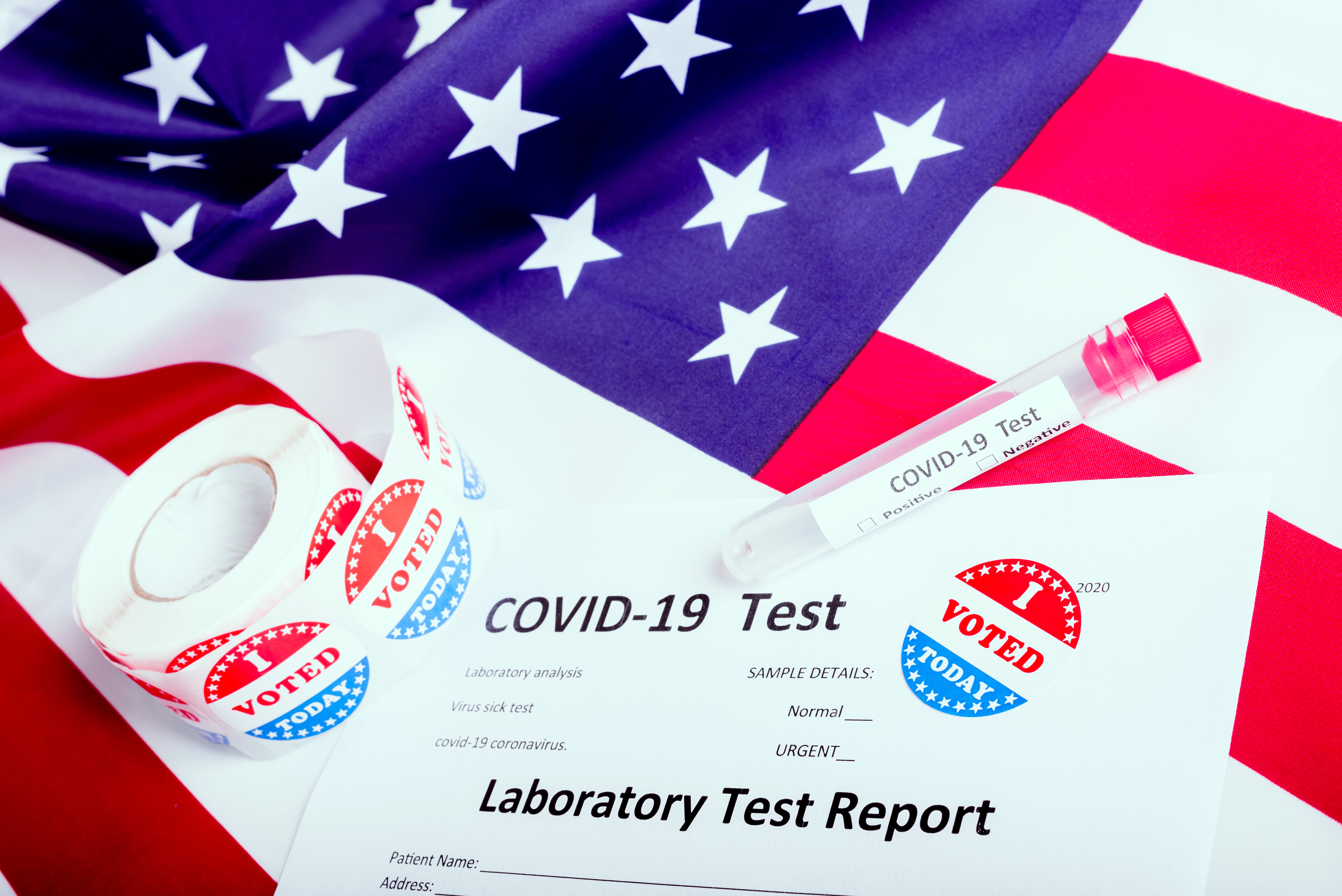A renowned Birmingham infectious disease physician believes Alabama needs to take precautions as elections near, and warned of a likely spike in COVID-19 cases in the fall.
Dr. Michael Saag, a professor and associate dean at UAB’s School of Medicine and a leading HIV/Aid researcher and expert on infectious diseases, wrote to the Circuit Court of Montgomery in an affidavit Wednesday that COVID-19 presents a real and deadly threat to voters as elections near.
Saag’s testimony is now part of a lawsuit brought by the League of Women Voters of Alabama against Gov. Kay Ivey, Secretary of State John Merrill and several Montgomery County election officials asking the court to expand Alabama’s absentee voting and relax other voting measures amid the COVID-19 crisis.
The nonprofit is joined in the suit by 10 plaintiffs who range in age from 60 to 75, many of whom have medical conditions that put them at greater risk for serious complications or death from COVID-19.
Plaintiffs in the suit on Wednesday filed a motion for a preliminary injunction asking the court to order Ivey and Merrill to submit an emergency plan to address the plaintiffs’ concerns, which include requirements for witnesses signatures and copies of photo IDs in order to vote absentee.
They also ask for expanded early voting to decrease the number of voters at the polls on election day.
“Plaintiffs’ fears of becoming infected and developing COVID-19 is more than justified for residents of Alabama. Between Monday, June 8, and Sunday, June 14, Alabama saw the second highest rate of new coronavirus cases per capita in the nation,” attorneys for the plaintiffs wrote in the motion.
Saag’s written testimony provided the court with an expert opinion on the state of COVID-19 in Alabama, and where things may be as voters head to the polls in the fall.
“We have no indication that transmission will decrease during the summer and fall months. Indeed, every indication is that the number of cases will continue to rise during the summer and into the fall,” Saag said in the affidavit.
COVID-19 is very contagious, 90 percent of Alabamians haven’t been infected, and so they’re still in danger, yet public is tired of staying at home and want to re-engage in old activities, Saag wrote.
“For all these reasons the virus is very likely to continue its aggressive transmission rate for the foreseeable future until an effective vaccine is developed, mass-produced and made fully available to and utilized by >50% of the general public,” Saag wrote. “In other words, this virus is not going to magically disappear. The likelihood is that the rate of transmission will continue to increase as time goes on, into the fall and winter months of 2021.”
The elderly and those with medical conditions are more likely to die from COVID-19, but everyone is at risk from the virus, he wrote.
“Indeed, I contracted the virus in March 2020, and was far sicker than I have ever been in my life,” Saag wrote.
“In my opinion, as it relates to COVID-19, the people of Alabama are not even in the woods yet, much less out of the woods. I am extremely concerned about the health and welfare of the people of our state,” Saag wrote. “I believe this virus will not only continue to escalate in Alabama, but this epidemic will be raging at a worse level into the fall and likely beyond.”
Saag also predicts there will be a spike in cases in late October and November when people head back indoors — “right around the time of the election.” That’s also when hospitals are dealing with regular flu patients, so the combination of both will cause a “major diagnostic dilemma” for doctors, he wrote.
A federal judge on Monday lifted a statewide ban on curbside voting and waived certain absentee ballot requirements for voters in at least Jefferson, Mobile, and Lee Counties in the matter of a separate suit against Ivey, Merrill and state and some local elections officials.
U.S. District Judge Abdul Kallon, in his opinion Monday, approved, in part, a preliminary injunction filed by the NAACP Legal Defense & Educational Fund Inc., the Southern Poverty Law Center and the Alabama Disabilities Advocacy Program. Following the judge’s ruling, on Tuesday, the Alabama Attorney General’s Office filed an appeal to the U.S. 11th Circuit Court of Appeals
The Republican primary runoff election is set for July 14. The state’s municipal elections take place August 25, and the general election is November 3.
Montgomery County Circuit Judge J.R. Gaines on Thursday set a hearing on the plaintiffs’ motion for a preliminary injunction for June 23.





















































